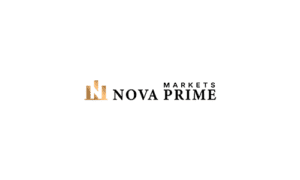Demand for automotive die casting lubricants grew at a sluggish pace at a 0.8% CAGR between 2016 and 2020. Due to restrictions in movement, disrupted supply chains, and halted production caused by the unprecedented COVID-19 outbreak, sales of automotive die casting lubricants witnessed a massive downturn.
However, according to FMI’s analysis, the global automotive die casting lubricant market is expected to grow by 3.8 percent year on year, reaching 28,138 Tons in volume. The water-based lubricant segment is expected to increase by 3.9 percent to 25,288 Tons, while the solvent-based lubricant segment is expected to increase by 3.2 percent to 4,000 Tons.
Rising economic development and consumer purchasing power are driving up demand for automobiles. However, rising fuel prices are causing consumers to opt for more fuel-efficient vehicles. Automotive die casting components have a higher strength-to-weight ratio than forged components, which is driving automotive die casting lubricant sales over the forecast period.
Furthermore, the automotive industry places a high value on highly precise and dimensionally accurate designs. Die casting is used to produce components with high precision and dimensional accuracy, which is driving its use in the automotive industry.
However, proper thermal management during production is critical. Lubricants are used in the die casting method to absorb temperature and prevent the process from overheating. As a result of these factors, demand for die casting lubricants is expected to skyrocket during the assessment period.
Furthermore, a shift in emphasis toward environmentally friendly and sustainable products is increasing the demand for automotive die casting lubricants. Carbon emission regulations are increasing the demand for lightweight and fuel-efficient automobiles, which is translating into more applications of the die casting process.
Metals such as aluminum, magnesium, zinc, and other non-ferrous metals that can provide a greater strength-to-weight ratio are used in manufacturing lightweight vehicles. These metals require die-casting to be cast in complex shapes used in the production of automobiles. This is expected to drive the demand for automotive die casting lubricants over the forecast period.
Owing to the aforementioned factors, Future Market Insights anticipates the global automotive die casting lubricants market is expected to expand at a CAGR of 4.1% during the assessment period.
- Henkel AG & Co. KGaA,
- Chem-Trend LP,
- Quaker Houghton Inc.,
- Moresco Corp.,
- The Hill and Griffith Company,
- Geiger + Co. Schmierstoff-Chemie GmbH,
- Ultraseal India Pvt. Ltd,
- CHEMTOOL INCORPORATED,
- Condat SA,
- Hardcastle Petrofer Pvt. Ltd,
- Sunocs LLC,
- J&S Chemical Corporation,
- Lubgraf Synoils Pvt. Ltd.,
- Aoki Science Institute Co., Ltd,
- Falcon Industrial Inc,
- Lafrance Manufacturing,
- Marbo Italia spa,
- Sunrise Chemtech Pvt. Ltd,
- Acme Refining LLC
To remain ahead of your competitors, Request a Sample Copy



































